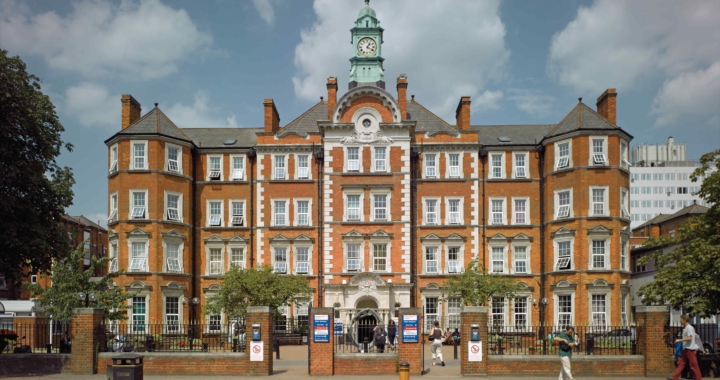Investment banking is one of the most sought-after careers in finance, known for its high salaries, rapid career growth, and intense work environment. A first-year investment banking analyst in New York or London can earn over ₹1 Crore per year, with salaries reaching ₹5-10 Crore at the Managing Director level. However, breaking into investment banking from India is extremely difficult due to limited opportunities, lower salaries, and fewer global IB roles in India.
If you want to work in top financial hubs like New York, London, or Singapore, you need a well-planned strategy. In this guide, we’ll break down:
- Why investment banking is so competitive
- Why job prospects in India are limited
- How the study abroad route (MFin/MBA) helps
- Step-by-step process to getting an investment banking job abroad
- The biggest challenges students face in the IB job market
What is Investment Banking & Why Is It So Competitive?
Investment bankers advise corporations on multi-billion-dollar deals, mergers, IPOs, and acquisitions, helping them raise capital and grow. The industry is highly competitive because of prestige, high salaries, and rapid promotions.
Investment Banking Career Ladder & Salaries
| Position | Experience | Salary (USD) | Salary (INR) |
|---|---|---|---|
| Analyst | 1-3 Years | $120K – $150K | ₹85L – ₹1.2Cr |
| Associate | 3-5 Years | $200K – $350K | ₹1.6Cr – ₹2.8Cr |
| Vice President | 5-7 Years | $400K – $700K | ₹3Cr+ |
| Managing Director | 10+ Years | $1M+ | ₹5Cr – ₹10Cr |
This fast-track salary growth is why investment banking attracts thousands of candidates, but only a few succeed.
Why India Isn’t the Best Place for Investment Banking Careers
Investment banking in India is significantly smaller than in global finance hubs like New York or London. Here’s why:
- Lower Deal Sizes: Most IB deals in India are in millions, while in Wall Street and London, deals are in billions.
- Fewer Global Banks: Top banks like Goldman Sachs, JPMorgan, and Morgan Stanley mainly have back-office roles in India, not front-end IB jobs.
- Lower Salaries: Even at top Indian IB firms, salaries rarely exceed ₹40L per year, while abroad, entry-level IB analysts make ₹1 Crore+ per year.
For ambitious finance professionals, moving abroad is the best option for securing higher salaries and career growth.
How the Study Abroad Route Helps: MFin vs. MBA
To break into IB abroad, you need to study at a target school where top banks recruit.
Two Main Degrees for Investment Banking
- Master’s in Finance (MFin): Best for students with 0-2 years of experience, offering direct IB recruitment.
- MBA in Finance: Best for professionals with 3-5 years of work experience, transitioning into IB from another industry.
Why MFin is the Better Route for Students?
- 1-year specialized finance program with strong IB recruitment.
- No prior work experience required, unlike an MBA.
- Direct placement into IB analyst & associate roles.
Top MFin Programs for Investment Banking
- London Business School (LBS) – UK
- Oxford Saïd Business School – UK
- MIT Sloan – USA
- Columbia University – USA
- HEC Paris – France
- LSE (London School of Economics) – UK
Frustrated with Generic College Lists from AI Tools?
Get a tailored college shortlist crafted by study abroad experts who understand YOUR goals, profile, and aspirations.

How to Build Your Profile for Investment Banking in College
To get into a top MFin/MBA, you need a strong finance background. Here’s how to prepare during college:
During Undergrad (BBA, Economics, Engineering, Commerce)
- Maintain 8.0+ CGPA (or 3.5+ GPA).
- Secure finance internships at Big 4 (EY, PwC, Deloitte, KPMG) or banks.
- Get CFA Level 1/2 certification.
- Join finance clubs, case competitions, and M&A research projects.
Before Applying for MFin or MBA
- GMAT 700+ (for MBA) or GRE 320+.
- Strong networking with alumni.
- Internships in corporate finance, private equity, or investment banking.
Now That You’re in a Top MFin/MBA, What’s Next?
Getting into a target school is only half the battle. Here’s what you need to do to secure an IB job.
Investment Banking Recruitment Timeline
- Months 1-3: Networking & Resume Prep.
- Months 3-6: Internship Applications & Interviews.
- Months 6-12: Full-Time Offer Conversion.
Key Actions to Take
- Network aggressively – connect with alumni, attend IB networking events, schedule coffee chats.
- Secure an IB internship – 90% of IB hires come from internship conversions.
- Master IB interview questions – study DCF, LBO, M&A modeling, and case studies.
Challenges Students Face in the IB Job Market
Even after joining an MFin/MBA, landing an IB job is extremely difficult. Here are the biggest challenges:
Extreme Competition
- Over 500+ students apply for fewer than 50 IB internship spots per firm at top schools.
- Without networking, your resume gets filtered out immediately.
Target School Bias
- Banks only recruit from top-tier universities.
- If you’re from a non-target school, breaking in is 10x harder.
Brutal IB Interviews
- Candidates face multiple rounds of technical & behavioral interviews.
- Questions include DCF valuation, leveraged buyouts (LBO), and M&A deal analysis.
Internship to Full-Time Conversion is Tough
- 70-100 hour workweeks are standard.
- Performance needs to be flawless to get a full-time offer.
Visa & Work Permit Issues
- US H1B visa is lottery-based.
- UK Tier 2 visa is easier but banks prioritize EU/UK candidates.
- Singapore & Hong Kong are reducing expat hires.
Final Takeaway: Your IB Roadmap
Investment banking is tough, but with the right strategy, it’s achievable.
- Build a strong finance profile in college.
- Get into a top MFin/MBA program.
- Network aggressively & prepare for IB interviews.
- Land an IB internship & convert it into a full-time job.
- Have a backup plan (PE, Big 4, or consulting).
With this roadmap, you can successfully earn ₹1Cr+ as an investment banker abroad!




